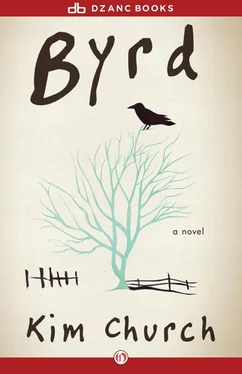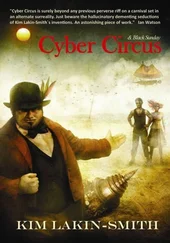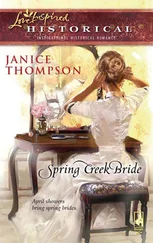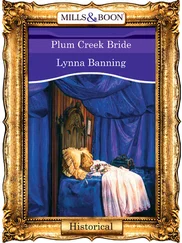Now that she is alone I try to visit as often as I can. She still lives in the house I grew up in, though she’s made some changes. New vinyl siding — she wanted something she could clean with a garden hose. A new azalea garden with red and pink bushes given to her when my father died. She has taken down the sweet gum tree that used to shade the driveway, the tree my brother once crashed into on his silver Huffy, his first ten-speed. I remember how he came flying down the hill on School Street, turned too wide, jumped the curb, hit the tree, and was thrown into the yard. I remember the whump when he landed. He didn’t know anyone at first; he didn’t recognize anything except his bike. He asked if it was damaged. I remember he said “damaged” because it sounded wrong, too old for a nine-year-old boy with blood and dirt in his mouth .
On the sweet gum stump there’s now a cast-iron cauldron brimming over with petunias, my mother’s latest touch. She is redecorating her life — new flowers, new sunshine, clean new siding. Her kitchen cabinets are freshly painted; the room is brighter now. She insists on cooking when I visit and never lets me take her out. She never stops being the mother. She always pays for my gas. As soon as I arrived today, she wrote me a check for twenty dollars. You should see her penmanship. She makes her letters exactly as she was taught. Her checks are too beautiful to cash. I carry them around until she calls me complaining that she can’t balance her checkbook .
We sat at the table in our regular places and held hands for grace. “We’re grateful for so much food,” she said. “Too much for just the two of us.” She asked God to bless everyone who wasn’t there — my brother and his wife, my father .
Silently I included you .
We had chicken pie and fresh summer vegetables and Sara Lee coconut cake for dessert. Then — always my favorite part — we cleared the table and washed dishes together, standing shoulder to shoulder at the sink, not talking, as if we already knew everything the other might say. My mother hummed “The Impossible Dream” in her crackly alto .
At the end of the song, she asked me, as if this somehow followed, “Didn’t you go to school with the chiropractor’s son?”
I almost gasped. She was asking about your father, though she doesn’t know he’s your father. She doesn’t know there’s a you. I’ve kept this part of my life a secret. But I have long suspected my mother of a kind of clairvoyance. An innocent, oblivious kind. She knows things she isn’t aware of knowing .
“We were friends,” I said .
“My friend Mary does his mother’s hair. It’s a shame about his little boy.”
“What little boy?” Can you imagine what was going through my mind?
“Something’s wrong with him, Mary says. He can’t talk. The family’s spent all kinds of money on doctors. He can make sounds, Mary says, but not words.”
“What little boy?”
“He has a funny name,” she said, frowning, trying to remember. “Smoky? Dirty?” She passed me a soapy bowl. It slipped out of my hands and crashed in the sink .
My mother gathered the shards. “You’re tired,” she said. “Go lie down on the couch. Take a little nap. I’ll finish these.”
Somehow, in all the years of trying to get on with my life — almost six years now — I never once imagined your father starting a family with anyone else. Being a father to some other son .
I especially never imagined that I would hear about it from my mother .
As I was leaving, she stood on her front porch to wave good-bye as she always does. She waved me into my car; she waved as I backed down the driveway and kept waving as I rounded the corner on School Street. I waved back. We waved and waved until we could no longer see each other .
Then I drove home and wrote you this letter .
Dear Byrd, your father has a family and it isn’t us .
Dusty’s birthday. He is five fingers, his whole hand.
As soon as his mother wakes up he can open his present. His mother’s name is Elle: it sounds like the letter and looks the same forward and backward. She is sleeping in because it’s Saturday and on Saturday his father gets up with him. His mother works in a restaurant. She works late waiting tables. She waits for people to decide what they want to eat and drink. He and his father wait for her to wake up.
“More Cheerios, buddy?” His father calls him buddy but his name is Dusty, short for Dustin, which his mother picked out. Dusty Rhodes.
He’s tired of cereal. What he wants is a taste of his father’s beer. He leans across his father’s belly and grabs. His father’s hand is long. It wraps all the way around his beer. His father says it’s good to have long hands if you play guitar, which he used to do, and sometimes still does, but only for Dusty.
“Okay,” his father says. “Just a sip.”
They are watching his favorite video, Home Alone . The burglars are trying to get into the boy’s house but they keep slipping on the ice. Dusty has never seen ice on sidewalks, only in drinks.
“Want to wake your mother up?” his father says.
Dusty shrugs. Sometimes his mother gets mad when they wake her up.
“Not talking today, buddy? Taking the day off?”
Some days are talking days and some aren’t, it depends on how he’s feeling. He likes words, he likes thinking about them, but not saying them out loud. When he tries to talk, the words get stuck in his mouth and he has to roar to make them come out. His mother once took him to a doctor who showed him how to move his mouth in different ways. At the end, the doctor said, “He’s fine. He just needs practice. More conversation, less TV.” His mother said thank you very fast and pushed Dusty out the door and took him for ice cream.
“REH RAYER UH,” he says to his father. Let’s wake her up.
“I think you just did,” his father says.
Elle is pretending to sleep. Under the bed is an expensive present Roland picked out without her. She can hear them in the next room watching Dusty’s Home Alone video with that awful little blond boy Dusty loves. Dusty is making his sounds. A good day, a talking day — it means he feels safe. She imagines him nestled on the sofa next to Roland, the warm, lumpy weight of him. She rolls onto her side and pulls up the sheet. She would like to wrap herself in their voices. She would like to stay in bed forever, feeling like a family.
The sun heats up the room. This is the nicest place Elle has lived since she came to California, a clean, carpeted two-bedroom in a big complex far away from Venice Beach, away from crowds and traffic and the constant gushing of the ocean. Away from that dingy little apartment Roland made her move out of while his North Carolina girlfriend was visiting and Elle was pretending not to mind.
It wasn’t long before he asked her to move back in.
Not long after that, she got pregnant.
“I thought we were being careful,” Roland said.
Elle said, “The pill isn’t foolproof. It only works ninety-seven percent of the time.” She didn’t lie, she just left out the truth.
They got married and moved into the new apartment, which she picked out herself.
“Everything’s tan,” Roland said.
“Caramel,” she said.
Roland got a new construction job closer to home. He played out as much as he could, while she waited tables and waited for him to make it —that was how he talked — or get a steady gig at least. Then the baby came and he quit, gave up his music altogether so he could spend his nights with Dusty.
Читать дальше












